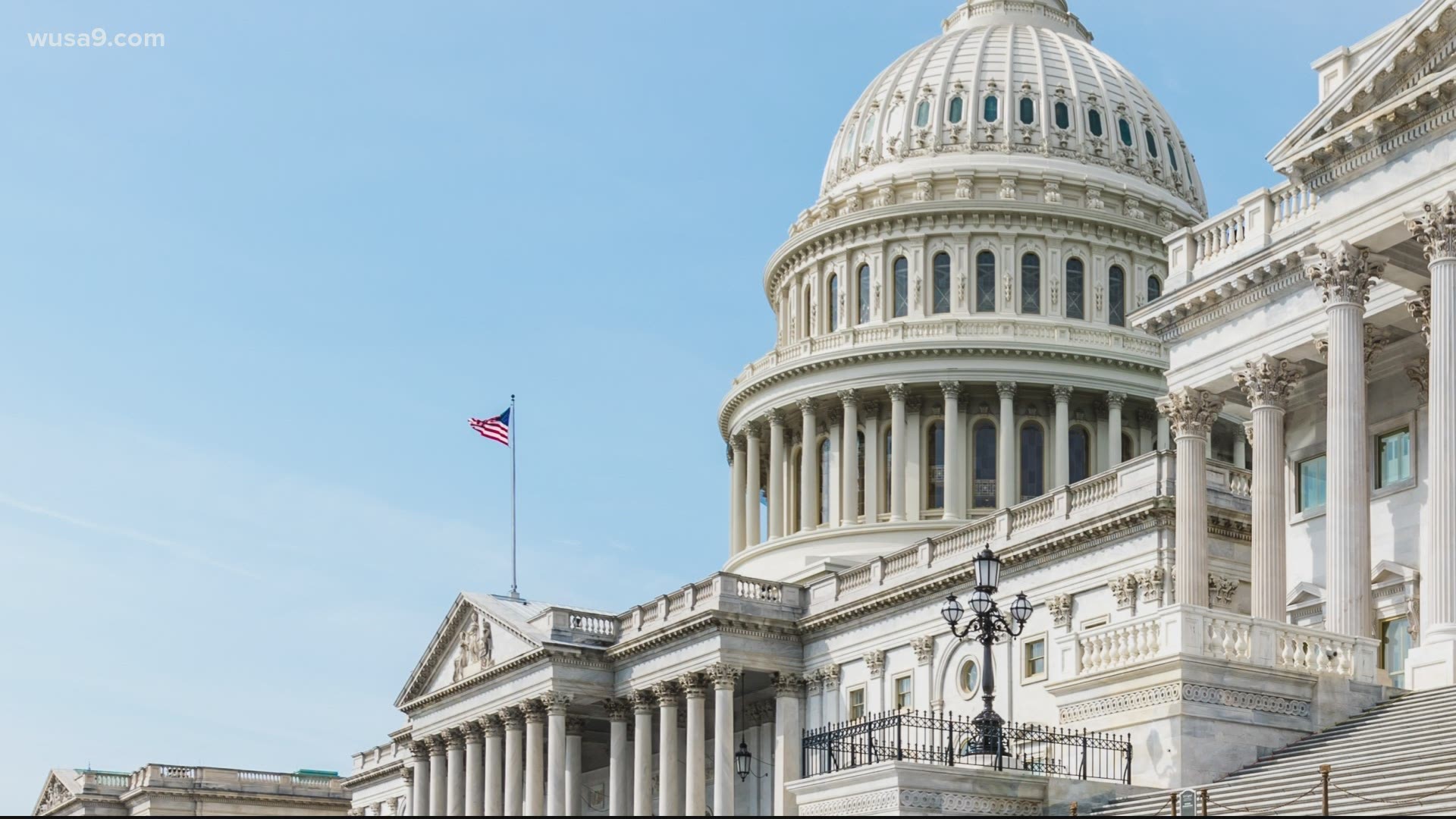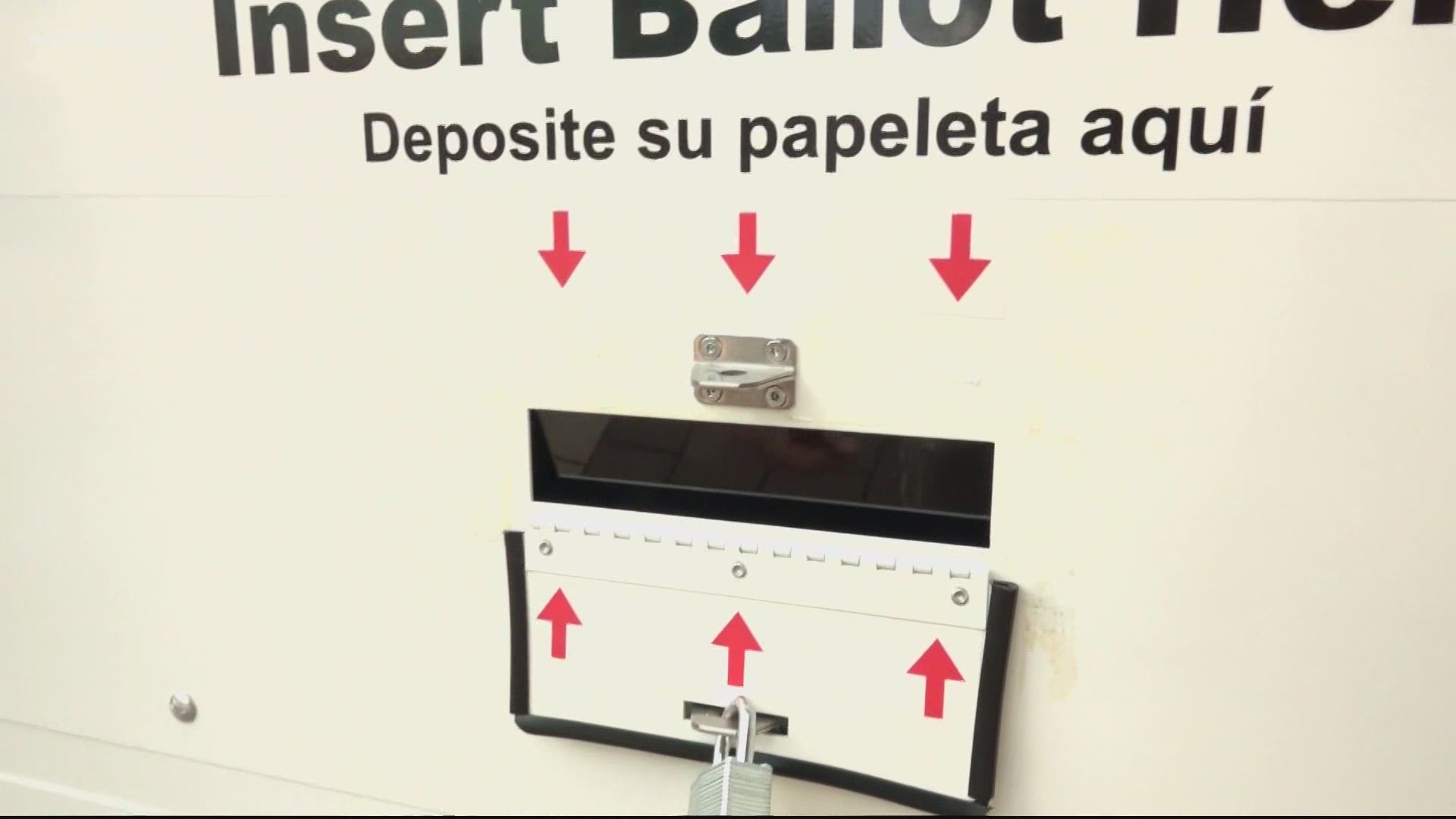WASHINGTON — QUESTION:
Do federal election laws mandate that the U.S. have election results by election night?
ANSWER:
No. And here's why.
SOURCES:
Gary Nordlinger, a politics professor at The George Washington University
Congressional Research Service: "The Electoral College: A 2020 Presidential Election Timeline"
3 U.S. Code § 5- "Determination of controversy as to the appointment of electors"
PROCESS:
President Donald Trump has recently suggested that all states should have results by election night.
“It would be very, very proper and very nice if a winner were declared on Nov. 3, instead of counting ballots for two weeks, which is totally inappropriate, and I don't believe that's by our laws," he said during an interview.
President Trump again voiced his preference that the presidential race be called the election night on social media.
So we're verifying: do federal election laws mandate that we have our results by election night?
Our Verify researchers spoke with Gary Nordlinger, a politics professor at The George Washington University, as well as an October report from the Congressional Research Service, Section 3 of the U.S. Code, and the 20th Amendment.
All of those sources say that off the bat, this is false. There is no law mandating that we have election results on election night.
"Absolutely not," Nordlinger said. "It's by, frankly, network projections and candidates conceding."
RELATED: Here's how long finalized election results might take, and a refresh on your rights as a voter
Nordlinger explains the only Constitutional requirement comes from the 20th Amendment, which says that a president must be inaugurated by January 20.
So, what deadlines are there?
The rest of the deadlines come from federal law, namely Title 3 of the United Stated Code. It mandates that presidential electors must cast their ballots by the first Monday after the second Wednesday in December.
This year that's December 14, 2020. Congress officially counts these votes by January 6, 2021.
And yet, in most election years, we know the results earlier.
“We’ve grown up in an age of technology, where we have the mass communications, we have the computer simulations, we have the exit polling," Nordlinger said. "All of which go into a pretty complex model that the Associated Press uses to declare the winners in each state.”
Nordlinger says the actual, final count may take longer this year.
Here are some examples of how state laws vary when it comes to counting ballots post-election:
Absentee Ballots
Absentee deadlines can vary widely across the country.
According to the National Conference of State Legislatures, if the ballot is postmarked by Election Day, several states allow the ballot to be counted days, even weeks later.
In Maryland and D.C., if it’s postmarked by Election Day, mail-in ballots can be counted up to 10 days after the election, on November 13. In Virginia, the deadline is noon, three days after the election, on November 6.
Some states offer even more time, according to the National Conference of State Legislatures. If postmarked by Election Day, Illinois will count a mail-in ballot up to 14 days later, and in California, up to 17 days later.
Other states, like Delaware, Georgia and Montana, won’t accept mail-in ballots after the polls close on election day.
Provisional Ballots
You may have heard a lot about provisional ballots recently.
They ensure that every eligible voter is given the chance to vote even if their name does not appear on the voter roll and their identity cannot be verified at the time. Provisional ballots are often referred to as a “fail-safe.”
Provisional votes are counted after election officials can verify your identity and eligibility to vote. In some states they can also be counted after the polls close on election night.
In Maryland, for instance, election officials begin counting provisional ballots, the second Wednesday after the election. This year, that’s November 11, 2020.
Active Duty Military and Overseas voters
Overseas and military voters have special voting rights under the Uniformed and Overseas Citizens Absentee Voting Act (UOCAVA) of 1986. It helps make it easier for those serving in the military, their families and U.S. citizens living outside of the country, to vote by absentee.
Some states allow military and overseas voters some wiggle room if they can’t return their ballot by Election Day.
For instance, in North Carolina, military or overseas voters can return their ballot via a Federal Write-In Absentee Ballot (FWAB), mail, fax, or email. Their ballot may still be accepted if it’s cast on election day according to voter time:
“The deadline to return military and overseas ballots is the close of polls on Election Day (7:30 p.m. EST). If the ballot is received after the deadline, it will not be timely, unless the voter transmitted the ballot by 12:01 a.m. on the day of the election (voter time) and the county board receives the ballot by the last business day before the county canvass. The county canvass is typically conducted 10 days after a general election and 7 days after other elections. When returning the ballot by mail, no postmark is required.”
Another example: in New York, military and overseas voters get an extra 6 days.
For the general public, absentee ballots must be postmarked by November 3 and received by the board of elections not later than November 10. For military members and those overseas voting in the 2020 general election, a ballot postmarked by November 3 must be received by November 16.


